World Football House Preview: Group E/F/G/H
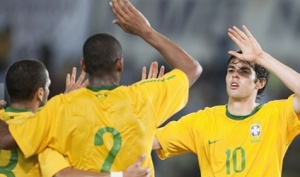
For the first time in its history, the FIFA World Cup will have a showcase arena for all 32 participating teams, offering a dynamic platform to showcase their national brand identity and to celebrate their respective cultural and commercial assets.
Pictured: Kaka and Brazil celebrate a goal during their warm up campaign
National pavilions accommodating all 32 teams will provide the estimated 450,000 fans visiting the world’s biggest and most widely viewed event with a unique opportunity to explore the rich diversities of the world today and to discover new cultural experiences and insights.
World Football House will become a true “Global Village” for the duration of the 2010 FIFA World Cup providing each country with a ground breaking opportunity for destination branding and cultural and commercial exchange and visitors with a unique World Cup experience.
Founder and president of World Football House, Graham Cooke said: “The World Football House will be the showcase for all the rich diversity of culture, arts and of course sport of all 32 countries taking part in the World Cup.
“It will provide the perfect environment for fans to get a unique insight into the differing cultures of the participating teams.”
World Sport Destination Expo
Also taking place in South Africa during the FIFA World Cup is World Sport Destination Expo, the sports tourism event of the year.
The first global exhibition dedicated to showcasing the $600 billion a year sport tourism industry, the event will allow delegates from around the world conduct future business, source new contacts and markets and gain invaluable insights from the advanced knowledge of industry leaders and figure-heads.
WSDE is fully endorsed by the leading authorities in sport and travel and tourism and is uniquely co-located alongside the final week of the 2010 FIFA World Cup (July 5th - 9th) at the SCC, Johannesburg, South Africa and is an unmissable event for forward thinking travel and tourism entities.
To celebrate these unique events Breaking Travel News here offers our guide to the teams competing at the 2010 FIFA World Cup in South Africa.
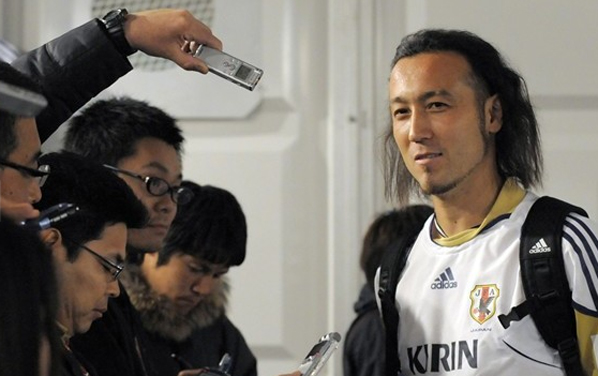
Japanese defender Marcus Tulio Tanaka answers questions ahead of kick-off
Group E
Cameroon
Though their light may have faded somewhat since they brightened up the world stage at the 1990 FIFA World Cup, Cameroon are not a side to underestimate at the 2010 FIFA World Cup in South Africa.
The top African nation in FIFA’s rankings, they also bring Africa’s richest pedigree to the finals. They have appeared a continental-best five times in the World Cup, and no other African side has yet eclipsed their historic run to the Italy 1990 quarter-finals – though Senegal equalled the achievement in 2002.
However, the team has not managed to advance past the group stage in three finals appearances since then, winning just once in their nine matches.
They lost out on Germany 2006 entirely after missing a penalty kick in the final moments of their last qualifier against Egypt.
But the long road to the 2010 World Cup has forged considerable momentum behind what many Cameroonians are hoping is the right mix of players, and a new generation of Roger Millas and Francois Omam-Biyiks.
The Cameroon Embassy in London has more information for interested visitors.
Denmark
After a six-year absence, Danish Dynamite is once again set to explode on the world footballing scene.
The Scandinavians missed out on both the 2006 FIFA World Cup in Germany and UEFA EURO 2008 in Austria and Switzerland, but the Danes will now be looking to extend their creditable record at three previous finals appearances, where they reached the Round of 16 twice and the quarter-finals on the other occasion.
Denmark’s first attempt at the trophy was in 1986 in Mexico, where they progressed to the last sixteen.
The core of that team then went on to register the nation’s greatest footballing triumph with the 1992 UEFA European Championship crown in neighbouring Sweden.
Denmark is an established tourist destination with more information at VisitDenmark.
Japan
Boasting one of the strongest squads in Asian football, Japan, winners of three of the last five editions of the AFC Asian Cup, have high hopes for the 2010 FIFA World Cup South Africa – their fourth appearance at the global showpiece.
First on the agenda is an improvement on the disappointing showing at Germany 2006, when the Samurai Blue exited at the first hurdle after a 3-1 reverse against Australia, a 0-0 draw with Croatia and a resounding 4-1 defeat by Brazil.
Japan will also be facing their first finals without iconic midfielder Hidetoshi Nakata. The former Roma schemer featured in each of the national side’s games at France 1998, Korea/Japan 2002 and Germany 2006 before hanging up his boots after the latter event aged just 29.
Japan’s official tourism website has more information for interested guests.
Netherlands
The final or bust. The Oranje have set lofty aims for their campaign in South Africa, 32 years after their 3-1 extra-time defeat by Argentina in the showpiece game, which itself came four years on from their 2-1 final loss to West Germany.
Since the retirement of pioneering coach Rinus Michels, a multitude of players have followed in the footsteps of the Johan Cruyff generation without ever advancing as far as the final hurdle, though one particularly talented crop did claim the European title in 1988.
Often seen as spectacular but mentally fragile, the Netherlands hope to banish that image under Bert van Marwijk, who took over in the wake of their disappointing UEFA EURO 2008 campaign.
He and his charges at least have history on their side this time around. The last team to reach a FIFA World Cup finals without dropping a single point in qualifying - West Germany in 1982 - went on to contest the final.
While the Netherlands may be the greatest side never to win the World Cup, Holland is still a great place to visit.
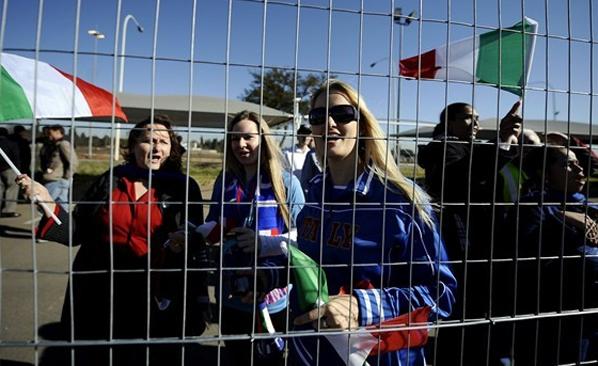
Italian supporters await the arrival of their team
Group F
Italy
Defending champions Italy will naturally be one of the leading contenders to emerge triumphant at the 2010 FIFA World Cup South Africa.
Along with Brazil the Azzurri are the only team to have won the tournament twice in succession, Marcello Lippi’s men will be vying to match the performance of their pioneering predecessors in 1934 and 1938.
Italy have qualified for 16 of the 18 FIFA World Cup finals, failing to book themselves a place in 1958 and having not opted to take part in the first edition in 1930.
They have won the competition on four occasions, in 1934, 1938, 1982 and four years ago in 2006. They also finished runners-up in 1970 and 1994 and claimed third place on home soil in 1990.
Tourism in Italy remains one of the strongest industries in the country, with more information here.
New Zealand
After a disastrous campaign four years ago, New Zealand bounced back in emphatic fashion under coach Ricki Herbert to qualify for their first appearance on the world stage in 28 years following a debut showing at Spain 1982.
Herbert, and assistant Brian Turner, were both key figures in the campaign nearly three decades ago.
The duo have turned the All Whites into a solid unit whose rearguard, the fifth-placed Asian nation Bahrain was unable to breach over 180 minutes of the intercontinental play-off.
Four years after elimination by the Solomon Islands, the Kiwis claimed the Oceania crown to earn a trip to the 2009 FIFA Confederations Cup, where they showed solid form after a poor opening against European champions Spain.
The dramatic South Africa 2010 play-off victory against Bahrain united the Rugby-mad nation behind the All Whites like never before, resulting in a national record crowd in the capital Wellington for the decisive qualifier.
Already popular with guests from around the world, New Zealand will be looking to boost its profile further during the tournament.
Paraguay
Having just put together their best ever qualification campaign, Paraguay are entitled to think big ahead of their fourth consecutive appearance at the FIFA World Cup finals.
Under the guidance of Argentinian coach Gerardo Martino, the current Albirroja crop look to have what it takes to build on the progress made by their predecessors at France 1998 and Korea/Japan 2002, where the Paraguayans reached the Round of 16 before being knocked out by France and Germany respectively.
That new-found offensive threat could make all the difference as Paraguay look to make amends for their first-round elimination at Germany 2006, a setback that several members of the current squad experienced at first hand and are determined not to repeat in South Africa.
An in-depth look at what visitors can expect on a visit to Paraguay can be found here.
Slovakia
Appearing for the first time in a major international competition, Slovakia have been striving to relive the glory years enjoyed by the former Czechoslovakia since going it alone in 1993.
Fourth in their section in qualifying for the 1998 FIFA World Cup France, third on the road to Korea/Japan 2002 and runners-up ahead of Germany 2006, Slovakia continued their rise by sealing top spot in Group 3.
Vladimir Weiss’s side booked their historic place on 14 October 2009, upsetting a number of predictions that they would struggle to cope with a difficult pool.
Their nearest rivals Slovenia proved a real thorn in their side, downing them 2-1 in their second outing and, above all, prevailing 2-0 in Bratislava in the penultimate round of matches, yet Slovakia’s desire to experience a FIFA World Cup finals shone through in the end.
Needing to prevail in Poland in their final outing, they duly triumphed 1-0.
Take a look here for information on visiting the eastern European destination.
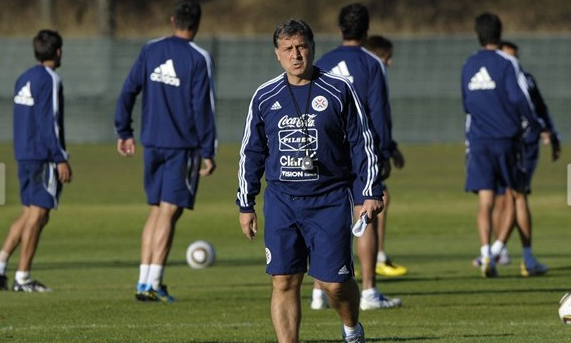
Paraguay coach Gerardo Martino drills his square ahead of the team’s first game
Group G
Brazil
It almost goes without saying that Brazil, the five-time world champions, go into every FIFA World Cup heavily favoured to add yet another star to the legendary Amarelinha shirt.
Having played for A Seleção at three editions of the global showpiece, coach Dunga will be fully aware that any outcome other than a sixth world crown will likely be considered a failure.
Brazil are preparing to contest their 19th consecutive FIFA World Cup finals, and are the only country to have taken part in every edition of the global showpiece.
They are also the only country to have won the title five times: amassing a total of 64 victories, 14 draws and 14 defeats in 92 games played.
The legendary footballing nation is also a fantastic place to visit, with more details here.
Cote d’Ivoire
If an African team is to make a major impact on the 2010 FIFA World Cup finals in South Africa, Côte d’Ivoire are seen by many as the most likely candidates. And with world class talent throughout the starting 11, it’s no wonder.
Les Elephants also a point to prove after being eliminated in the first round at Germany 2006, albeit in an extremely difficult group, where they lost 2-1 to giants Argentina and the Netherlands before coming from two goals down to beat Serbia and Montenegro 3-2.
With more experience, and a little more luck in the draw, a (hopefully) fit Didier Drogba and his team are certain to be a handful in attack as they look to cement their emerging pedigree on the international level at South Africa 2010.
The Cote d’Ivoire Embassy in London has more information for guests.
Korea DPR
Korea DPR seemingly came from nowhere to storm into the Asian Zone’s final round of qualifying, where they defied sizeable odds to take one of the continent’s four automatic spots at the 2010 FIFA World Cup South Africa.
In a sense they lived up to their long-standing reputation as Asia’s surprise packages, their qualifying success marking a return to world football’s top table for the first time since going all the way to the last eight in 1966.
After spending nearly 30 years in wilderness, the past decade saw the revival of the nation’s footballing fortunes.
With their women’s football teams running riot at all levels on the international scene, the men’s side came close to qualifying for Germany 2006 before successfully negotiating the road to South Africa 2010.
Interested in a visit to the Democratic People’s Republic of Korea? Take a look.
Portugal
Finalists at UEFA EURO 2004 and semi-finalists at Germany 2006, Portugal have displayed some dazzling football in recent years, but without ever landing a major prize.
Having never progressed beyond the semi-finals of a FIFA World Cup, A Selecção das Quinas will be aiming to go all the way this time around.
Mozambican-born coach Carlos Queiroz is no stranger to South Africa, and his previous experience as the host nation’s coach could prove invaluable. With talents of players such as Cristiano Ronaldo, Pepe and Deco to call upon, Queiroz will know that expectations are sure to be high.
There is also more to Portugal than just golf holiday. For more information head over to the official website.
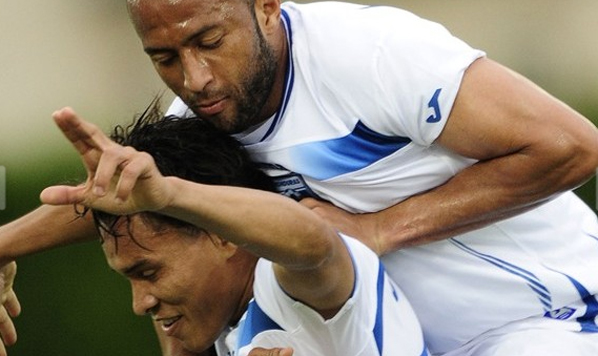
Honduras celebrate a goal during their build up for this, their second FIFA World Cup appearance
Group H
Chile
Chile’s recent renaissance has been capped by a return to the FIFA World Cup finals following a 12-year absence.
In the international wilderness since France 1998, when Marcelo Salas and Ivan Zamorano showcased their consummate finishing skills, La Roja believe they have the resources to emulate their illustrious predecessors and advance beyond the group phase.
Coached by the experienced Argentinian Marcelo Bielsa, the Chileans qualified for the finals with some ease, atoning for poor performances in the qualifying competitions for Korea/Japan 2002 and Germany 2006, when they finished ninth and seventh respectively.
And having finally found talented replacements to fill the void left by the Za-Sa partnership, hopes are high that they can go on and excel themselves in South Africa.
Visit Chile has more information.
Honduras
Honduras reached the finals of the FIFA World Cup for only the second time in dramatic fashion, an equaliser in the dying seconds of the USA’s clash with Costa Rica triggering frantic celebrations from Los Catrachos’ fans thousands of miles further south.
Yet despite having squeezed into the finals, coach Reinaldo Rueda’s talented team will not be going to South Africa just to make up the numbers.
After taking the job in early 2007, his professionalism struck a chord with the powers that be in Honduran football, who gave him the time to work denied many of his predecessors.
Rueda repaid their faith by guiding his adopted country to South Africa 2010 on the back of sparkling attacking football and a solid backline.
Lets Go Honduras has all the information visitors will need.
Spain
On a scale of one to ten, Spain’s performance in qualifying for the 2010 FIFA World Cup South Africa can only be given top marks.
On top of wins in each of their ten games, La Roja were the European Zone’s second top scorers with 28 goals while conceding a miserly five at the other end.
Maturity, resilience and the ability to overcome adversity were all in evidence during their campaign, and few national teams in world football are blessed with squads of such depth and sheer talent.
Following a win at Euro 2008 nothing less will do here.
Fancy a break on some of the best beaches in the world? Take a look at the official tourism website here.
Switzerland
Switzerland will be appearing at the FIFA World Cup finals for the ninth time when the summer’s tournament gets underway in South Africa, where coach Ottmar Hitzfeld and his men are aiming for more than just a supporting role.
The former Borussia Dortmund and Bayern Munich boss took the national helm after Switzerland’s disappointing showing at UEFA EURO 2008, and has now led them to their second FIFA World Cup finals in a row.
The Swiss made it to the Round of 16 at the 2006 event in Germany, where they were unluckily eliminated on penalties by Ukraine.
The Swiss boast a healthy blend of youth and experience, combining talented younger players such as Eren Derdiyok, Tranquillo Barnetta and keeper Diego Benaglio with seasoned campaigners like Alexander Frei and Blaise N’Kufo.
The current team is hoping at least to emulate the achievements of their forebears who made the last eight in 1934, 1938 and 1954.
Switzerland also has one of the most developed tourism sectors in the world.

